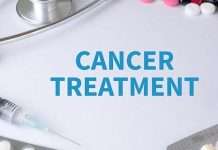(By Pharm. Ayodele Adedipe)
During the 2008 annual conference of the Pharmaceutical Society of Nigeria (PSN) held in Abuja, former Head of State, Chief Olusegun Obasanjo, gave a directive to a committee to come up with a plan to produce 75 per cent of Nigerian drug requirement by 2010.
Sadly, since that directive was given some years ago, not much has been heard of the issue in terms of progress or development.
This matter has been discussed at various levels in the private sector of the pharmaceutical industry in Nigeria. The general feeling is that the OBJ directive is too important to be allowed to die. Maybe a report has been submitted; but, by now, Nigerians should have been fully informed of the intention of the government on this very important matter. But if there is nothing positive on ground, it is not too late to revive the whole exercise. This kind of exercise is not entirely new.
Sometime in 1960, the Ford Foundation sent a consultant to evaluate the state of the pharmaceutical business in Nigeria. It happened that I was privileged to work with this team in Lagos and Port Harcourt to evaluate the statistics of imports to Nigeria by extracting useful information from Custom documents.
A report was produced which I believe can still be accessed from The Ford Foundation. But what is of interest is that it is very doubtful if such exercise has been repeated since then. The point I am trying to make is that for a programme of this magnitude, there must be a statistical basis to work on.
Be that as it may, this should not be a handicap. Therefore, I will like to make the following suggestions to kick-start this very important directive whatever the stage the study has reached at the moment.
Statistical survey of drug purchases and consumption at the federal, state and local government levels for the past five years
Since Government at the three tiers are responsible for about 65 per cent of the drug business in Nigeria, it is possible to make a projection for the total drug business for the whole country from whatever information is accessed from the above exercise.
With this statistics in place, one can then start planning the strategy to adopt for the present and future needs of the Nation.
Strategy
It is instructive to note that other countries in the past have adopted this kind of strategy to jumpstart the pharmaceutical industry. These include Indonesia and Brazil. In other words, the study we are embarking on is not new, and so we should learn from what other countries have done in the past in order to make a quantum leap.
Going from the known to the unknown
NAFDAC has a data bank of approved pharmaceutical industries in Nigeria. But for the kind of information required for the exercise we have in mind, we require much more than a list of products these approved industries manufacture at the moment.
There is the need to know:
· What product groups are now manufactured in Nigeria.
· The capacity available for each product group.
· The capacity utilization for each product group based on current statistics.
· The technical manpower available.
It is only when these pieces of information are available that one can make a meaningful projection for the future. Hopefully, with the recent capitalisation of banks in Nigeria, the issue of funding should not be a handicap.
Both local and foreign investors will be better encouraged to come into the sectors if current and credible information is available.
Comments and observations
No doubt, there are lots of base studies that have to be done. Still, the little information available shows that the pharmaceutical business in Nigeria is a big and thriving one, capable of creating more jobs at all levels and contributing substantially to the Gross Domestic Products (GDP) of the Nation.
It is instructive to note that the following allied areas of the industry have not been touched in the country at the moment:
· Drugs for the veterinary industry;
· Drugs for the agro-allied Industry
· Medical diagnostic and allied products.
· Drugs and chemical for the environmental sector.
· Production of raw materials in which Nigeria has a comparable advantage for both home consumption and export, e.g. starch, glucose, ethanol from cassava.
I hope from all what has been said above, some progress in this all-important assignment can be realised.
Pharm. Ayodele Adedipe is the chairman of Drugfield Pharmaceutical Industry, Ota










